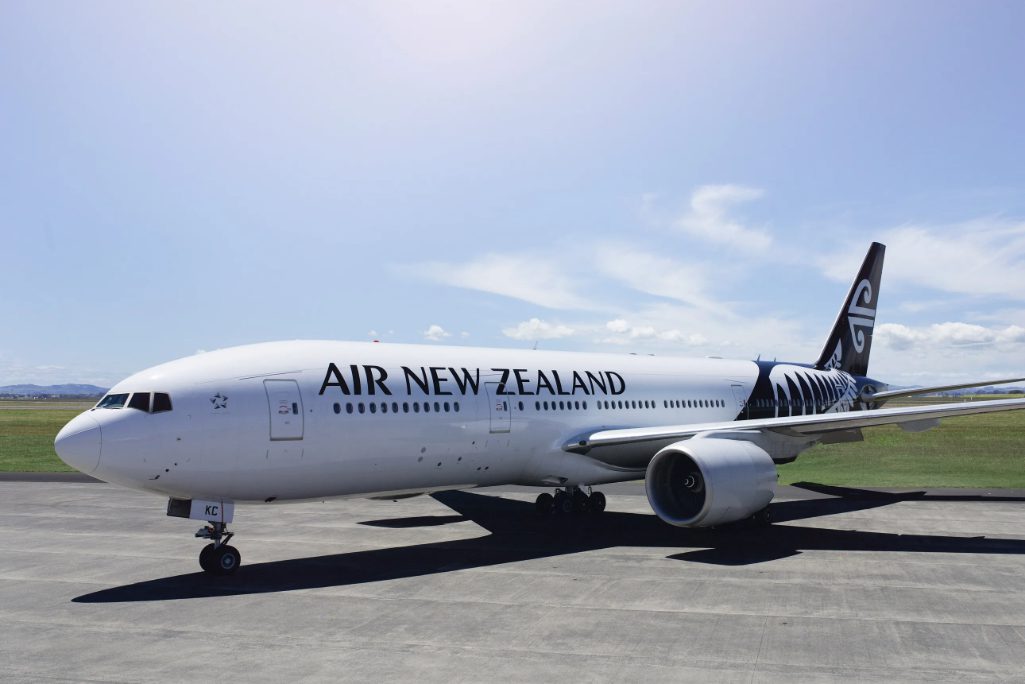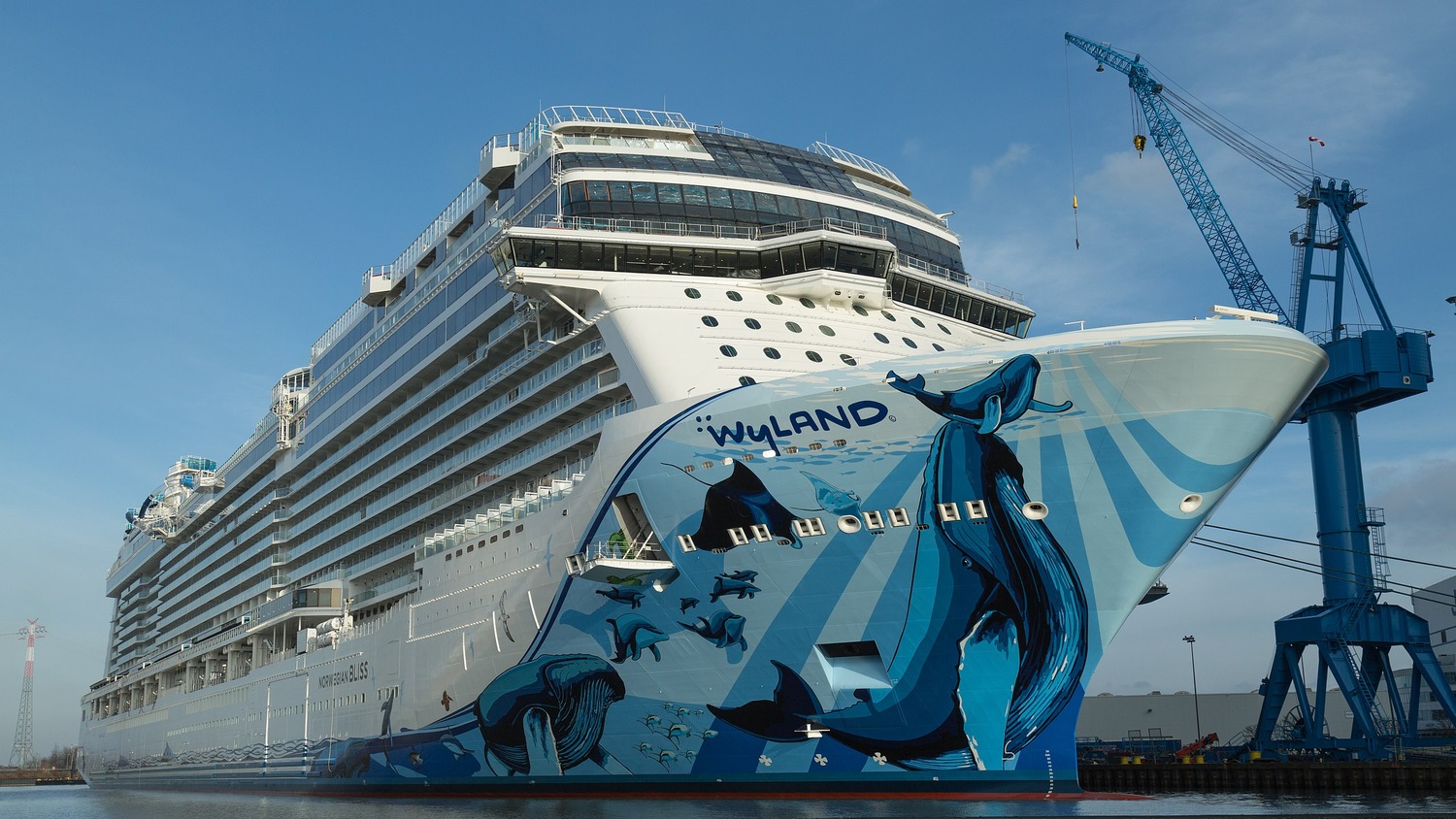All-Star Investors Katzenberg, Thiel, and Tosi Take Stake in Travel Startup Flyr

Skift Take
It's rare for young travel startups to draw luminary investors early on. Yet Flyr Labs, which has only been selling business intelligence software to airlines for about a year, revealed it had closed a $150 million equity financing round led by WestCap Group and supported by several high-profile backers. Private equity giant Silver Lake also joined as a new investor.
WestCap is a growth equity firm founded by Laurence Tosi, the former chief financial officer at Airbnb and Blackstone. Wndr, a firm founded by Jeffrey Katzenberg, the former chairman of Walt Disney Studios and the co-founder of Dreamworks, also invested. Peter Thiel, the PayPal founder and best-selling author of Zero to One, personally took a stake, leading the firm's Series A round and participating in the rounds since.
"Airlines have historically struggled to invest in back-end enterprise technology," said Laurence Tosi. "It's the only sector I can think of that collectively spun all their technology out because they didn't want to invest in it, creating the GDSes [global distribution systems, namely Amadeus, Sabre, and Travelport]."
"When [Flyr CEO Alex Mans] showed me he was going to the airlines and saying, 'I'll plug this in and if it works you pay me,' I thought that was bold, knowing as I do the airline customers and the suppliers and their typical models," Tosi said. "When he showed me it took less time to wire up JetBlue, which I fly all the time, than it did one of our portfolio reporting software companies to connect to enterprise risk management solutions, I was impressed, too."
Air New Zealand is the first customer publicized by Flyr, which says the airline is switching to it from PROS (Pricing and Revenue Optimization Solutions), a cloud software company.
Tosi said Flyr is taking advantage of a wave of new technologies and processes not yet adopted at scale by airlines for many business intelligence purposes.
"Flyr is a paradigm shift in the optimization of legacy systems in that it sits on top, creating actionable outputs for decision-makers," Tosi said.
Tosi cited how Flyr uses contextual information to inform pricing decisions by applying artificial intelligence and machine learning concepts. The clever computations extract supply and demand signals across an airline's network. Software then susses out if information is probably relevant to a single flight or a single market and suggests airfare changes if appropriate.
In contrast, legacy tech systems have tended to require more explicit signals of bookings on a specific flight or market to recommend price changes, according to the startup's sales pitch.
"The pandemic has created an inflection point where every airline is looking for more accurate and centralized forecasts," said founder and CEO Alex Mans. "They want to replace today's divergent forecasts and tools scattered across their organizations."
Luminary Investors Bet on Travel Tech
Tosi, Katzenberg, and Thiel are well known, and their support of Flyr will help drive buzz for the company.
Yet the backing of well-known professional investors isn't enough of a reason to have faith in a startup. It's unclear what, say, the co-founder of DreamWorks studio Katzenberg could add in insight and connections to a travel tech vendor.
Current market incentives may be encouraging well-heeled investors to buy almost anything. Yet Flyr's management — unsurprisingly — sees things more positively.
"It's lazy to look at an investment round of the size that we're doing and attribute it to a Covid financial bubble-induced environment," Mans said. "It is absolutely not."
Flyr's executives conceded that the startup's timing is unusually lucky in that its product is unusually well adapted to the pandemic-related revenue crunch for airlines.
"Timing is definitely half of it," Mans said. "We've taken advantage of legacy vendors having not really innovated for decades, timing from Covid triggering airline executives to make bolder changes partly out of the desperation, and timing in having a good cycle for raising capital."
Flyr may appear to casual observers to be enjoying a sudden breakout moment, but the company has reached this point after three-and-a-half years of engineering work fueled by more than $30 million of prior funding. Flyr also lucked out by enjoying rare cooperation from a few airlines, given that carriers are ordinarily risk-averse about technology overhauls.
"The reason why you don't see many startups in the travel revenue management space over the last decades is you cannot launch an MVP [a minimum viable product] to manage billions of dollars in revenue for a public company," Mans said. "We have a very unique hyper-growth scenario right now."
Flyr's executives also argued that experienced travel sector investors WestCap, Silver Lake, and JetBlue Technology Ventures bring a lot to the table, such as proven playbooks for scaling up companies.
WestCap has invested in other travel sector startups. One of them is Hopper, a mobile-first online travel agency that offers financial technology products. Hopper raised $175 million last month. Another is lodging brand Sonder, which has agreed to merge with special purpose acquisition company Gores Metropoulos II in a deal worth at least $2.17 billion later this year.
Silver Lake, a private equity firm that previously supported Airbnb, Expedia Group, Vacasa, and Sabre, has provided growth capital. Silver Lake has insight into the travel sector and Flyr's potential challenges and opportunities. Former portfolio company tech firm Sabre, for example, has offered airlines revenue management and business intelligence tools for many years.
The venture capital arm of U.S. airline JetBlue — JetBlue Technology Ventures, which helped to incubate Flyr and guided the startup in a pivot from a consumer-facing to an enterprise startup — also was part of this Series C raise. It's believed JetBlue has also been rolling out Flyr's software.
Flyr plans to buy more small businesses after having made two recent small acquisitions.
WestCap Advises Flyr Closely
An unnamed investor in Flyr introduced the startup's management team to WestCap.
"The casual catch-up call led to a pitch meeting, and that quickly escalated," Mans said. "Within two months they were leading this funding round."
WestCap is providing the startup free advisory services, not just capital. One part of the consulting help is from WestCap's CoLab, run by Allen Mask, who held product leadership roles at Airbnb and Sonos. The other part is StratOps Group, which advises on optimizing operations, such as improving customer service with data science.
When Flyr's head of growth, Matt Brown, was introduced in June to CoLab, he was skeptical.
"I've had experiences in my career with VC [venture capital] and PE [private equity] firms where they offer you help, and all of a sudden, you get this chargeback that just blows your entire budget for the year," Brown said. But WestCap doesn't do that, he said.
Tosi said that beyond the business proposition and early traction, he liked Flyr because of its CEO.
"I founded four businesses that were sold for more than $1 billion, and as an entrepreneur, I saw in Alex a mission-driven passion that's rare," Tosi said. "I could tell he's true problem solver, with brilliant quantitative and product skills."
Tosi passed along a story of Mans having a hobby of restoring a classic car that he's owned. He was impressed by the CEO's attention to detail and persistence even after hours and when shifting from the abstract nature of software to the mechanical nature of, say, a drivetrain.
In other words, the adage that "business isn't personal, it's just business," isn't true when it comes to startup investing, Tosi said.
"It's super personal, especially when you're talking with someone every week and so on," Tosi said. "Alex [Mans] has got the perseverance to disrupt a space historically resistant to change."
CORRECTION: The spelling of Allen Mask's name has been corrected.





